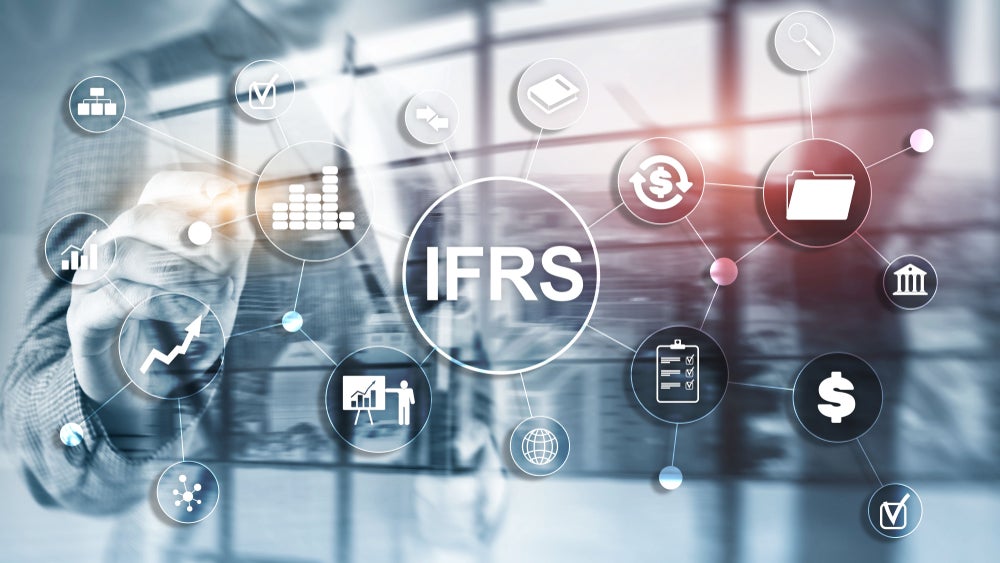
IFRS 16: When to Avoid Low-Value and Short-Term Exemptions
International Financial Reporting Standard for lease accounting, IFRS 16, came into force four years ago, introduced by the International Accounting Standards Board (IASB). Stefan Iggo, CFO, of Australasian-based sustainable equipment financer Quadrent (and provider of lease accounting software, LOIS), offers his view on combining compliance with company goals.
Many factors are involved in getting IFRS 16 right for compliance purposes and to realise operational and strategic benefits. And while many organisations made decisions based on making the transition and compliance process easier when the standard came into effect in 2019, it doesn’t mean there aren’t factors that companies should assess to ensure IFRS 16 is compliant and meets some of its corporate objectives.
The low-value and short-term exemptions, which provide two scenarios where leases don’t need to go on a company balance sheet, is a critical area that companies should analyse to ensure they are getting it right. This article outlines why the low-value and short-term exemptions allowed under IFRS 16 shouldn’t always be used.
Low-value and short-term exemptions
The two exemptions that allow companies to keep leases off their balance sheet are the following:
- Low-value exemption: Where a lease has a value that is not material to the company. The value depends on the size of the company, but it usually ranges from AUD$10,000 (£5,735)to AUD$100,000 (£57,354).
- Short-term exemption: Any lease with a term of less than 12 months. This may include leases such as equipment rentals.
When the IFRS 16 standard came into effect on 1 January 2019, many companies tried to make the transition as quickly and efficiently as possible. Using the low-value and short-term exemptions where feasible allowed companies to save time, reduce the administrative burden of transition, and keep the exempt leases as operating expenses (OPEX) instead of capital expenses (CAPEX).
While the short-term benefits of reduced administration and not increasing the balance sheet size may have been suitable for companies when IFRS 16 came into effect, companies are now dealing with the consequences of defaulting to using the low-value and short-term exemptions. The administration required to retrospectively complete the appropriate data collection and entry when a lease needs to move onto the balance sheet negates the time savings and efficiencies that may have been realised at the time of transition.
How well do you really know your competitors?
Access the most comprehensive Company Profiles on the market, powered by GlobalData. Save hours of research. Gain competitive edge.

Thank you!
Your download email will arrive shortly
Not ready to buy yet? Download a free sample
We are confident about the unique quality of our Company Profiles. However, we want you to make the most beneficial decision for your business, so we offer a free sample that you can download by submitting the below form
By GlobalDataShort-term exemptions aren’t always the right option
The main grey area in the short-term exemption is rolling leases. While companies might intend to keep a rolling lease for less than 12 months, the term often ends up going over this time. This is common in industries such as mining and mining services, where equipment may be on a rolling lease for many years, meaning it should be recorded on the balance sheet from the start.
Over the last four years, auditors have become aware of how often companies may have taken the short-term exemption when a lease ends up being in place for longer than 12 months. Of course, this decision isn’t always deliberate or misleading on a company’s behalf, but it shows that thinking only of the short-term administrative ease throughout IFRS 16 transition is costing companies more now than if the lease had gone onto the balance sheet from the start.
Once a company has a lease for more than 12 months, it becomes a liability. If the lease was originally a short-term exemption, the business must go back through its enterprise resource planning (ERP) program and manually create spreadsheets and records to satisfy IFRS 16 compliance requirements.
Further, this ad-hoc approach is an administrative burden. It lacks the ability to access real-time data and analytics about a company’s leases, which would help decision-makers ensure they’re getting the best return on investment (ROI) possible. Taking the time to assess a lease at the outset, decide the likelihood of it continuing for longer than 12 months, and migrate to a lease management system as soon as possible would help companies appropriately account for their leases and address exemption problems before they arise in the future.
Low-value exemption can become costly
When the low-value exemption is used, a company and its auditors must agree on the low-value threshold in the context of their company and industry. For example, in aviation, the vehicles that tow aeroplanes on the tarmac would be considered low value, despite costing over AUD50,000 (£28,300).
While the low-value exemption may seem like a straightforward option, it doesn’t take into account the EBITDA improvements that can be gained from putting low-value leases on the balance sheet from the beginning. Further, even if the low-value exemption is used and remains off the balance sheet, it’s still required in statutory reporting. This means the company needs thorough and accurate records of all leases, whether they are on or off the balance sheet.
By assessing all low-value leases and potentially taking these onto the balance sheet when the IFRS 16 standard came into effect, a company would have collected data over time. In collecting this data, a company could assess if it’s getting value from all of its leases, their return on equity, how many lessors they have and if they’re paying varying prices for the same assets. Further, this information gives the company a strong position from which to negotiate with lessors and financiers, providing strategic benefits and an increased ROI.
Companies that have used the low-value and short-term exemption as a standard in the IFRS 16 transition process may be dealing with costly consequences today. Not only does this negate any time savings from the time of transition, but it also reduces the potential ROI the company could have realised if the lease was on the balance sheet delivering EBITDA improvements and providing in-depth data for strong decision-making.
Using lease accounting software from the beginning makes IFRS 16 compliance simple while helping companies to build up a wealth of lease management data that can later be analysed to make better commercial decisions.
52% of US companies adopt post-Enron lease accounting rules
Cost-benefit analysis urged for IFRS 16 leasing rules







